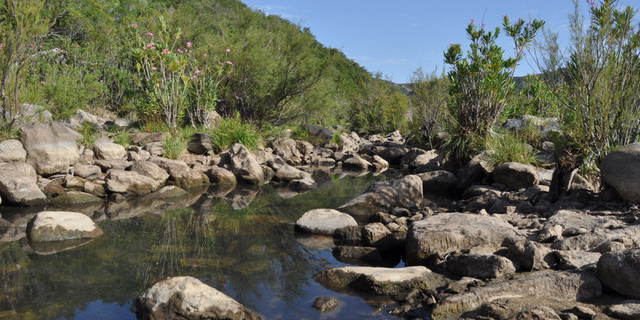Research project
Securing biodiversity, functional integrity and ecosystem services in DRYing riVER networks
- Start date: 1 October 2020
- End date: 30 September 2024
- Funder: EU Horizon 2020
- Value: €6 million
- Primary investigator: Professor Julia Martin-Ortega
- Co-investigators: Professor Thijs Dekker

Rivers, streams, lakes, wetlands and other aquatic environments are among the world’s most biodiverse ecosystems. They are also those most threatened by human activities. These river networks also provide essential ecosystem services – such as drinking water, food and climate regulation – that enhance society’s well-being. But climate change and humans’ growing water needs are causing these river networks to dry up around the world. The effects on biodiversity, the networks’ ecological integrity and the ecosystem services they provide are devastating.
Today, scientists estimate that more than half of the world’s river networks are going dry, a phenomenon that is worsening dramatically around the planet. And yet, so far the scientific community, natural resource managers and legislators have devoted little attention to drying river networks, which are often not even on the public’s radar. As a result, no comprehensive biodiversity conservation or resource management strategies are in place for these Anthropocene environments.
A multidisciplinary consortium coordinated by INRAE of 25 experts from 11 countries (in Europe and South America, as well as China and the United States) – will explore for a four-year period how the drying effects of climate change alter the biodiversity, functional integrity and ecosystem services of drying river networks. The aim of the DRYvER (Securing biodiversity, functional integrity and ecosystem services in DRYing riVER networks) is to collect, analyse and model data from nine case studies in Europe and South America to create a novel global meta-system approach that incorporates hydrology, socio-economics, ecology and biogeochemistry. Another goal of DRYvER is to craft strategies, tools and recommendations for adaptive management of river networks.
Working in collaboration with resource managers and citizens, the DRYvER team plans to co-develop new strategies to mitigate and adapt to the effects of climate change on these networks by integrating quantitative and qualitative perspectives, including nature-based solutions with a strong socio-economic and legislative component. DRYvER’s findings, which should be available in 2024, will contribute to meeting the objectives of the Paris agreement and put Europe at the forefront of climate change research.

